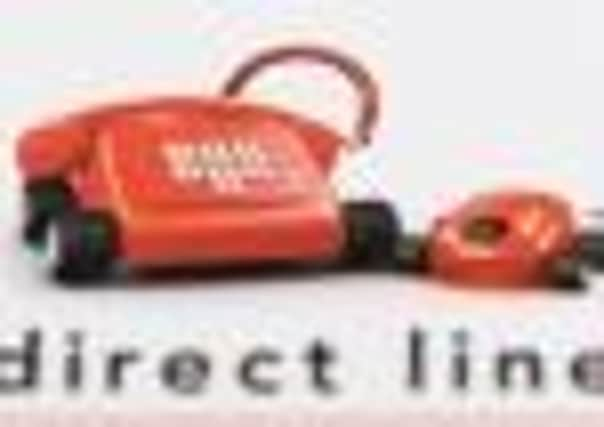Direct Line talks up profit hopes as insurer gears up for flotation


The UK’s largest car insurer is expected to float next month, if market conditions prove favourable, and chief executive Paul Geddes said the process of separating itself from RBS was now almost complete.
He said: “Other than some transitional services provided by RBS Group, we have essentially achieved the goal of operating as a standalone insurance company.”
Advertisement
Hide AdAdvertisement
Hide AdHowever, Geddes said Direct Line expects to reach a deal with RBS later this month to continue providing general insurance products on an arm’s length basis for five years after its separation from the group.
Although the group’s eponymous brand is keen to emphasise that its products are not found on price comparison websites, its Churchill and Privilege brands were added to comparethemarket.com in July and are now available through the UK’s four main comparison sites. Home insurance products are expected to follow later this year, the group said yesterday.
The insurer, founded in 1985, also provides breakdown cover through Green Flag and has set itself the target of delivering a 15 per cent return on tangible equity. That is up from an annualised 10.2 per cent reported for the first half of this year.
Direct Line hired former Aviva finance director Mike Biggs as its chairman in March as it prepared to break away from RBS. Biggs was in the management team that demutualised and later floated Norwich Union, before merging it with Commercial General Union to form CGNU in 2000.
RBS is required to sell the group, which also includes the broker business NIG, by the end of 2014 in return for its bailout. European regulators have told RBS that it must cede control of its insurance arm by the end of 2013, and sell its entire shareholding by the end of the following year.
Two rival consortia of private equity firms are understood to have expressed an interest in Direct Line but the bank, 82 per cent owned by the taxpayer, believes a public listing is the best option. Analysts believe it could be worth about £3 billion.
Direct Line paid a £200 million dividend to RBS yesterday, on top of the £800m it paid out during the six months to 30 June, and is aiming to deliver £100m in savings by the end of 2014 through reduced administration costs and more efficient marketing.
The firm said operating profits from ongoing operations rose 7 per cent to £224.2m for the six months to 30 June. However, restructuring and other one-off costs relating to its separation from RBS saw pre-tax profits drop to £106.5m, from £187.5m a year earlier.
Advertisement
Hide AdAdvertisement
Hide AdAlthough the number of motor insurance policies in force fell to 4.2 million, from 4.4 million a year ago, Direct Line said it had enjoyed a boost to travel policies sold through packaged current accounts, which helped its total in-force policies rise 4 per cent to 20.1 million. Gross written premiums were largely flat at just over £2bn.
Geddes said: “This has been an important period for Direct Line Group. We are now beginning to see the benefits of our transformation plan.”